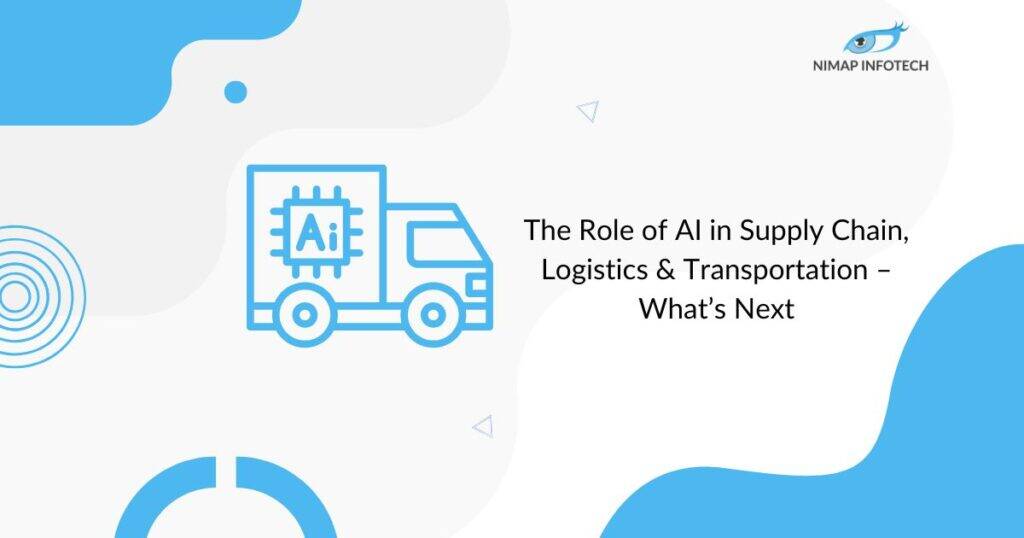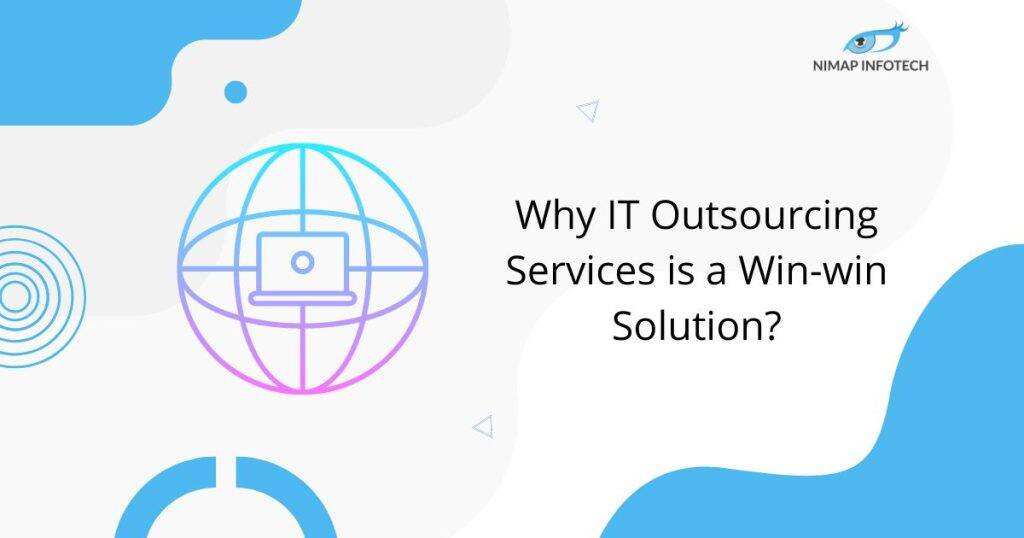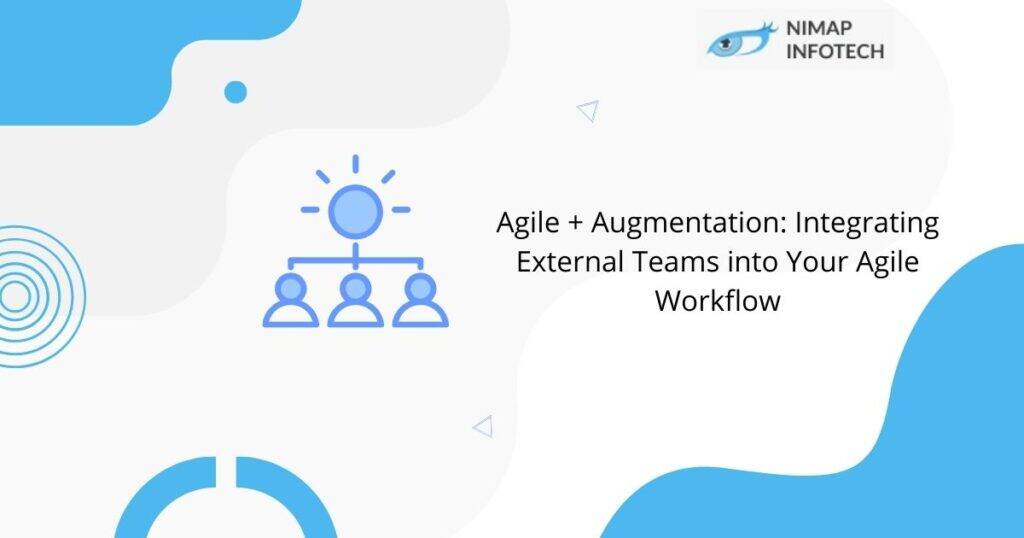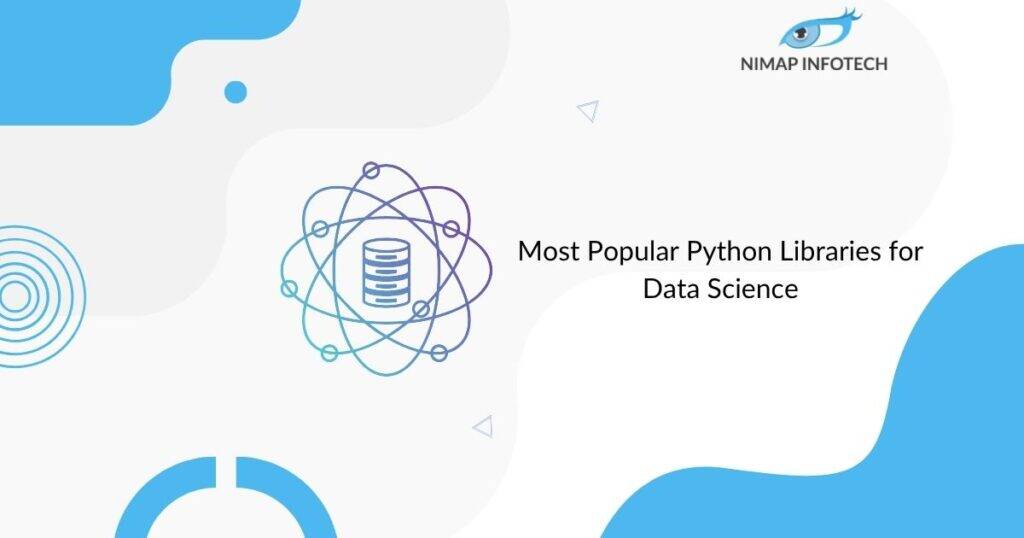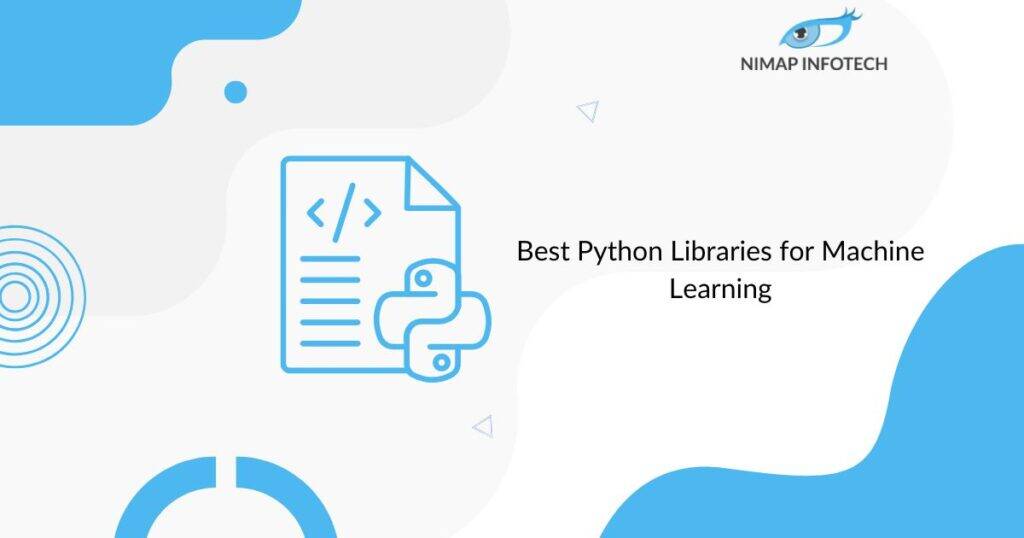In today’s fast-paced global economy, artificial intelligence (AI) is revolutionizing supply chain management, logistics, and transportation by enhancing efficiency, optimizing processes, and enabling data-driven decision-making. From predictive analytics and route optimization to warehouse automation and demand forecasting, AI-powered solutions streamline operations, reduce costs, and improve overall supply chain resilience. As businesses strive to meet rising consumer expectations, AI-driven logistics automation, real-time tracking, and autonomous transportation are reshaping the industry. This blog explores how AI transforms supply chain visibility, risk management, and last-mile delivery, paving the way for smarter, faster, and more sustainable logistics solutions.
Artificial intelligence (AI) is revolutionizing nearly every facet of the food and beverage industry, driving innovation, efficiency, and sustainability. From product development and quality control to supply chain management and customer experience, AI-powered solutions are transforming the way businesses operate. An Artificial Intelligence (AI) Services Company plays a crucial role in enabling these advancements by providing cutting-edge AI solutions tailored to industry needs.
By leveraging machine learning, predictive analytics, and automation, companies can optimize recipe formulation, ingredient sourcing, and food safety monitoring, ensuring higher standards of quality and consistency. In supply chain management, AI enhances demand forecasting, inventory optimization, and logistics, reducing waste and improving sustainability. Additionally, AI-driven robotics and smart manufacturing are streamlining food processing, packaging, and order fulfillment, making operations more cost-effective and scalable.
Beyond production, AI is also reshaping consumer engagement by enabling personalized recommendations, chatbots, and smart menu planning. As the food and beverage industry continues to evolve, AI remains a game-changing tool, offering innovative, sustainable, and highly efficient solutions to help businesses thrive in an increasingly competitive market.
This comprehensive blog aims to understand the role of AI in supply chain, logistics and transportation altogether.
Top Benefits of AI in Logistics Operations
AI-driven Transformation in Logistics Application Development
Logistics software development has evolved dramatically, shifting from manual, time-intensive tasks to a streamlined, data-driven ecosystem. With workflow automation, the industry – once reliant on static planning and prone to delays—now achieves unprecedented efficiency, accuracy, and cost savings through intelligent automation.
Challenges of Traditional Logistics Operations
Despite advancements in technology, logistics application development services still face significant hurdles due to outdated manual processes. Some of the key challenges include:
1. Delays in the Logistics Chain
- Unforeseen disruptions such as weather conditions, equipment breakdowns, and supply chain bottlenecks create significant delays. In fact, in 2024, 53% of merchants reported experiencing package delays, affecting customer satisfaction and business operations.
2. Inefficient Route Planning
- Without logistics software solutions, companies often rely on static route planning, which cannot adapt to real-time traffic or weather conditions. Traffic congestion alone costs the industry $74.5 billion annually.
3. Limited Supply Chain Visibility
- Managing a supply chain without AI-powered insights is like navigating in the dark. 44% of supply chain executives acknowledge that they lack the end-to-end visibility required for proactive decision-making and disruption management.
4. Manual, Time-consuming Processes
- Traditional logistics operations depend on manual workflows for picking, packing, shipping, and tracking, leading to inefficiencies. Warehouses lose approximately 3,000 hours annually due to outdated manual processes.
These challenges highlight the need for AI-driven logistics application development solutions to optimize operations.
The AI Revolution in Logistics: Key Benefits
With the integration of AI, the logistics industry has witnessed a remarkable transformation. According to recent reports, 38% of logistics companies have already implemented AI, leading to cost reductions of up to 50%.
1. Cost Savings & Safety
- AI-driven logistics software development services can lower operational costs by 50% while increasing workplace safety by 90%. This allows companies to reinvest in innovation and scalability.
2. Delay Management
- AI-powered predictive analytics mitigates potential delays before they occur by leveraging real-time data, ensuring seamless logistics operations.
3. Route Optimization
- With AI, logistics software development companies can enhance route planning, reducing transit times, fuel consumption, and operational costs.
4. Disruption Preparedness
- AI’s predictive capabilities empower logistics businesses to proactively plan for unforeseen events, minimizing downtime and enhancing customer satisfaction.
5. Task Automation
- Automating complex tasks using AI reduces human errors, streamlines operations, and ensures consistency across the logistics ecosystem.
Experts predict that by 2035, AI will boost logistics application development productivity by more than 40%, revolutionizing the industry with smarter, automated solutions.
AI Applications in Logistics: Key Areas of Transformation
With a clear understanding of AI’s impact, let’s explore the specific areas where AI is transforming logistics software development companies in India and beyond:
1. Automated Warehousing
- AI-driven robots are revolutionizing warehousing by efficiently handling sorting, packaging, and inventory tracking. Machine learning algorithms optimize storage space and predict demand patterns for efficient stock management.
2. Demand Forecasting
- Unlike traditional forecasting methods, AI incorporates external variables such as weather patterns, market trends, and consumer behavior to provide highly accurate demand predictions, improving inventory management and reducing waste.
3. Predictive Maintenance & Damage Detection
- AI-powered logistics applications analyze sensor data to predict equipment failures before they occur, minimizing unplanned downtime. Additionally, AI-driven computer vision detects product damage, ensuring quality control and enhancing customer satisfaction.
4. Stock Level Optimization
- AI dynamically adjusts stock levels using predictive analytics, preventing overstocking or stock shortages. This enhances supply chain efficiency and reduces unnecessary inventory costs.
5. Supply Chain Optimization
AI-powered logistics software solutions enable real-time supply chain optimization through:
- Dynamic Route Planning: AI-based algorithms optimize transportation routes, reducing delivery times and costs.
- Supplier Management: AI tracks supplier performance and suggests improvements for better collaboration.
- Predictive Maintenance: AI predicts equipment failures, allowing for proactive repairs and minimizing downtime.
6. Dynamic Pricing
- AI-driven dynamic pricing analyzes real-time market trends, competitor pricing, and customer behavior to optimize pricing strategies, improving both revenue and customer satisfaction.
7. Route Optimization
- AI-powered logistics software development services integrate real-time traffic data, delivery constraints, and fuel efficiency metrics to generate optimized delivery routes, cutting costs and reducing environmental impact.
8. Automating Document Processing
- AI-based Natural Language Processing (NLP) and Optical Character Recognition (OCR) automate document processing, significantly reducing manual workload and minimizing errors.
Transform Your Logistics Operations with AI
The future of logistics application development is AI-driven, offering unmatched efficiency, cost savings, and automation. Businesses seeking to optimize their supply chain must leverage AI-powered logistics software solutions to stay ahead of the competition.
Partner with a Leading Logistics Application Development Company
Looking for an expert-driven, AI-powered logistics application development company in India? Our custom logistics application development services help businesses achieve greater efficiency, scalability, and success.
Benefits of AI in Supply Chain
Driving Supply Chain Excellence with AI-powered Innovation
AI is revolutionizing supply chains and logistics by delivering powerful optimization capabilities that drive more accurate capacity planning, improved demand forecasting, enhanced productivity, and reduced operational costs. By leveraging AI-driven insights, businesses can maximize efficiency, boost output, and create safer working environments.
The disruptions caused by the pandemic have highlighted the vulnerabilities in global supply chains, emphasizing the critical need for intelligent contingency planning. AI enables companies to anticipate uncertainties, adapt proactively, and implement resilient strategies to navigate challenges effectively.
In today’s fast-paced and complex global market, supply chains must operate with greater speed, accuracy, and resilience than ever before. Traditional supply chain methods, though effective in the past, are no longer sufficient to keep up with evolving customer demands and market fluctuations. This is where artificial intelligence (AI) revolutionizes the game. By integrating
AI into supply chain management, businesses can unlock a wide array of benefits — from predictive analytics and real-time tracking to automation and intelligent decision-making. AI not only streamlines operations but also empowers companies to become more proactive, efficient, and customer-centric. In this article, we’ll explore the top benefits of AI in supply chain management and how it’s transforming the future of logistics and operations.
1. Enhanced Demand Forecasting
- AI-powered analytics process vast amounts of historical and real-time data to improve demand forecasting accuracy. This helps businesses reduce stockouts, minimize overstocking, and optimize inventory levels.
2. Optimized Inventory Management
- AI-driven inventory optimization ensures the right stock levels are maintained, reducing storage costs and preventing excess inventory. Machine learning algorithms help predict demand fluctuations more accurately.
3. Predictive Maintenance
- AI helps predict equipment failures before they occur, reducing downtime and improving operational efficiency. AI-powered sensors analyze machine data to schedule preventive maintenance.
4. Improved Logistics and Route Optimization
- AI optimizes delivery routes using real-time data, weather conditions, and traffic patterns. This reduces fuel consumption, enhances delivery speed, and lowers transportation costs.
5. Automated Supply Chain Processes
- AI automates repetitive tasks such as order processing, invoice management, and supplier communication, leading to greater efficiency and reduced human errors.
6. Risk Management and Disruption Prediction
- AI-powered risk analysis tools monitor global supply chain data to detect potential disruptions (natural disasters, political issues, or supplier delays) and suggest proactive measures.
7. Supplier Relationship Management
- AI evaluates supplier performance based on real-time metrics, ensuring businesses collaborate with the most reliable vendors and streamline procurement processes.
8. Fraud Detection and Cybersecurity
- AI strengthens supply chain security by identifying fraudulent transactions, cybersecurity threats, and data breaches using advanced machine learning models.
9. Sustainability and Waste Reduction
- AI promotes eco-friendly supply chains by reducing waste, optimizing energy consumption, and minimizing carbon footprints through intelligent resource management.
10. Improved Customer Experience
- AI enhances order accuracy, tracking, and delivery speed, ensuring a seamless customer experience and higher satisfaction levels.
AI in supply chain management enables businesses to reduce costs, enhance efficiency, and improve decision-making by leveraging predictive analytics and automation. As technology advances, AI will continue transforming supply chains into more agile, resilient, and data-driven ecosystems.
Benefits of AI in the Transportation Industry
The adoption of Artificial Intelligence (AI) in the transportation sector is transforming how businesses operate, optimizing processes, and driving efficiency. While AI adoption varies across regions, its impact on transportation and logistics is undeniable. AI plays a crucial role in smart city ecosystems, enhancing urban mobility, safety, and overall productivity through intelligent digital solutions.
The Role of AI in Transport and Logistics
AI-driven transportation software development companies provide cutting-edge transport and logistics software solutions that optimize supply chains, improve fleet management, and enhance operational efficiency. From predictive analytics to real-time monitoring, AI enhances transportation planning and ensures smooth logistics operations.
Key Benefits of AI in Transportation and Logistics
Cost Reduction & Higher Profits
- AI minimizes labor costs by automating routine processes, leading to higher profits for logistics companies. Transport and logistics software development services streamline workflows, optimize routes, and reduce fuel consumption.
Improved Safety & Accident Prevention
- AI enhances traffic monitoring and accident prediction, ensuring safer roads. AI-powered analytics help prevent potential hazards by analyzing historical and real-time data.
Traffic Management & Optimization
- AI enables smarter traffic management by forecasting congestion using historical data. This helps cities and logistics businesses plan efficient routes, reducing delays and improving travel time.
Real-Time Route Optimization
- Logistics companies benefit from AI-powered route detection that adjusts deliveries in real time, minimizing waiting times and optimizing fuel usage. AI-driven transport and logistics software solutions enable seamless fleet coordination and better shipment tracking.
Best Practices for AI in Transportation
Implementing AI requires high-quality data. Transport and logistics software development companies must ensure they collect, clean, and process data effectively before deploying AI models. Real-world use cases, such as autonomous vehicles and predictive logistics planning, rely on structured, high-quality data to provide reliable outcomes.
AI is reshaping the transportation and logistics industry, improving traffic management, enhancing passenger safety, and reducing carbon emissions. Transportation software development companies leverage AI to automate processes, optimize fleet operations, and enhance logistics planning.
In the aviation industry, AI-powered smart fleet management helps predict delays and improve revenue generation by analyzing weather patterns and traffic data. However, due to the complexity of the transportation sector, businesses must work with experienced AI engineers and machine learning experts to develop tailored transport and logistics software solutions that address specific challenges and drive operational excellence.
The Future of AI in the Industry
While AI offers transformative potential, concerns persist regarding data quality and transparency. AI systems rely on vast data sources, and inaccuracies can arise if they learn from flawed inputs.
Artificial Intelligence (AI) is revolutionizing industries by enhancing automation, decision-making, and efficiency. Its impact spans various sectors, from manufacturing and healthcare to finance and retail, enabling intelligent systems that optimize workflows, reduce manual labor, and improve predictive analytics. AI consulting services help businesses implement tailored AI solutions, ensuring seamless integration and maximizing operational benefits.
AI-driven personalization is transforming customer experiences, while in healthcare, it aids in early disease detection and medical advancements. However, ethical AI practices, data transparency, and security remain crucial as adoption grows. Additionally, AI plays a key role in sustainability, helping create smarter cities and optimizing resource management. As AI continues to evolve, businesses must embrace responsible innovation to maximize its potential, ensuring a future of smarter, more efficient, and data-driven industries.
By leveraging AI for smarter product development, waste reduction, and supply chain optimization, businesses are not only enhancing efficiency but also meeting consumer demands with unprecedented precision, shaping a more sustainable and responsive industry. Want to integrate AI into your business strategy? Contact Nimap Infotech today and unlock the full potential of AI-driven solutions!
FAQs
AI in transportation is optimizing route planning, reducing fuel consumption, and enhancing fleet management through predictive analytics. AI-powered systems also improve safety by enabling autonomous vehicles and real-time traffic monitoring.
AI in supply chain enhances efficiency by automating demand forecasting, optimizing inventory management, and streamlining warehouse operations. It helps businesses reduce costs, minimize delays, and improve decision-making with real-time data insights.
AI in logistics enables smart route optimization, automated sorting, and predictive maintenance for vehicles and equipment. It helps logistics companies reduce delivery times, improve accuracy, and enhance overall supply chain resilience.
Nimap Infotech, a logistics application development company specializes in building AI-driven solutions tailored for supply chain and transportation needs. These companies help businesses integrate automation, machine learning, and predictive analytics to optimize logistics workflows and boost efficiency.
The future of AI in transportation, logistics, and supply chain includes increased adoption of autonomous delivery systems, AI-powered supply chain resilience, and the use of digital twins for real-time logistics simulation. Companies that embrace AI-driven solutions will stay ahead in a highly competitive market.
Author
-

Sagar Nagda is the Founder and Owner of Nimap Infotech, a leading IT outsourcing and project management company specializing in web and mobile app development. With an MBA from Bocconi University, Italy, and a Digital Marketing specialization from UCLA, Sagar blends business acumen with digital expertise. He has organically scaled Nimap Infotech, serving 500+ clients with over 1200 projects delivered.
View all posts

